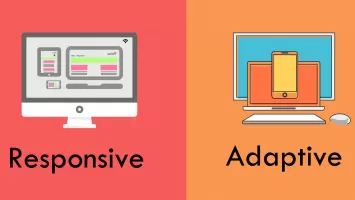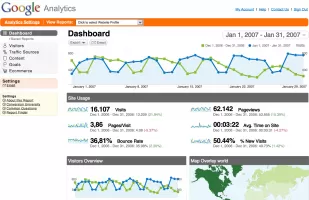Google Analytics 4 represents a major change from the usual Analytics environment: it collects different data, stores it differently, and displays it differently. While this only confuses many, we can talk about progress in Google’s analytics system.
What has changed in Google Analytics 4?
Anyone who has been using Analytics for a long time and is watching the changes may remember that the latest version of Google Analytics was released in 2013 when the so-called “Universal Analytics” measurement was launched. To do this, the tracking code had to be updated, but the data remained unchanged. With Google Analytics 4, the situation is not so simple, as it collects, stores, and displays data quite differently than before. And while most people don’t like change, Analytics 4 is a tool to better understand user behavior, collect important data faster, and even pay attention to user privacy.
This change is the result of three new technologies that Google has been working on for years. The first of these is called Firebase Analytics, which is the backend of Google Analytics. Firebase is a product suite for mobile application development that Google acquired in 2014. In practice, this means that data recorded on websites and native applications can now be displayed in a single format. Firebase Analytics uses an event-driven data model that is better at measuring user activity and describing behavior.
The other technology is called “Google Signals,” which may be familiar from the fact that the software recognizes logged-in users based on Google Accounts. This is the same method that Google uses to create audiences. And Analytics 4 uses this feature instead of cookies to recognize users.
Finally, the third technology is the global site tag, which allows changes to the user interface to change the code installed on the site. So, for example, you can use GA4 to turn on a feature that lets you track when users play a YouTube video, and the code to do so is automatically installed on your website without making any changes to the tag manager.
What is the issues with Google Analytics 4?
Universal Analytics measurement was built on sessions. So when the question arose about how much traffic a campaign brought, the answer was the number of sessions. And if someone is interested in how convinced the website was of users, either the bounce rate or the length of the session, or the number of pages viewed during the session showed this.
However, there is a small problem with the session: it is difficult to use this in mobile applications as they are much more diverse than traditional websites. And assumptions about the user experience that are true on a website may not be valid in an application. So, for example, if you run and use an app that tracks running data, you start that app and then leave it on for hours. It measures your run. But how many sessions does that mean? Is bounce rate or the number of pages viewed per session really a useful metric in this case?
The event-driven data model mentioned earlier solves these problems by replacing previously used query types with three simple components: events, event parameters, and user properties. And that completely changes the way we look at data so far. When something happens - for example, a user clicks on a link - it can be measured as an event. The parameters describe the event, such as capturing the text of the link. User properties specify which user initiated the event.
Pageviews and sessions are no longer the basis for measurements. They still exist, but you don’t have to use them anymore if it doesn’t make sense because the focus is on users and events. In GA4, the most important data is the user instead of the session. In addition, the event-based data model allows you to apply new dimensions and metrics that no longer require sessions.
So is Google Analytics 4 better than Universal Analytics?
Google Analytics 4 is significantly different from the usual Google Analytics, so many website owners are averse to the new system. But generally, it is better than the Universal Analytics because of these features:
- More customizable interface
- More control over custom reporting and more detailed reporting
- Better real-time data
- Brand-new Automatic tracking
- Better data exporting
It is recommended to start learning the platform from now on as Google Analytics 4 will replace Universal Analytics completely from 2023 July!














